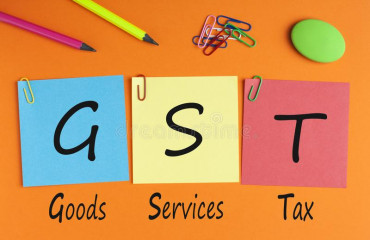
In this letter, the Advocates’ Tax Bar Association addresses the Hon’ble Finance Minister to request the abolishment of the Reverse Charge Mechanism (RCM) for registered dealers, except for Government Organizations and NGOs. The RCM has been causing unintended consequences and hardships for businesses, hindering growth, and fostering corruption.
In this letter, the Advocates' Tax Bar Association addresses the Hon'ble Finance Minister to request the abolishment of the Reverse Charge Mechanism (RCM) for registered dealers, except for Government Organizations and NGOs. The RCM has been causing unintended consequences and hardships for businesses, hindering growth, and fostering corruption.
The letter highlights the challenges posed by the Reverse Charge Mechanism, including the lack of disclosure mechanisms, increased compliance costs, and extortion by tax officials. The Association emphasizes that the RCM has not yielded the desired revenue boost and proposes its exemption for genuine businesses. The Advocates' Tax Bar Association's appeal to the Ministry of Finance aims to improve ease of doing business, reduce corruption, boost SMEs, and enhance overall tax compliance.
Advocates' Tax Bar Association
(Registered Under Societies Act, 1860 Having Members All Over India)
GH-5 & 7, Flat No. 520, Paschim Vihar, New Delhi-110087
M. No: 7607779800 E-Mail: atbaindia@gmail.com Website: atba.in
Ref.: ATBA/Rep./2023-24/02 Date 20.07.2023
To,
The Hon'ble Finance Minister,
Ministry of Finance, Government of India,
North Block, New Delhi – 110001.
Subject: Request to Abolish the Reverse Charge Mechanism on Registered Dealers, except Government Organizations and NGOs.
Respected Madam,
On behalf of the Advocates' Tax Bar Association, we are writing to bring to your attention a pressing concern that has been adversely affecting businesses across the country – the Reverse Charge Mechanism on Registered Dealers.
First and foremost, let us express our deep appreciation for the Government's constant efforts to strengthen the Indian economy and improve its tax framework. We acknowledge the importance of revenue generation to fund essential public services and developmental initiatives. However, we firmly believe that certain measures, like the Reverse Charge Mechanism on Registered Dealers, have resulted in unintended consequences that outweigh their benefits.
The Reverse Charge Mechanism, as implemented, holds registered dealers liable for the payment of taxes on behalf of unregistered suppliers when certain specified goods or services are procured from them. The RCM so deposited by the registered dealer becomes ITC in the hands of depositing dealer which means it is revenue neutral in the hands of Government. But there is no mechanism in the GSTN system to disclose RCM in the GSTR-1 so the figures of RCM reflect in the GSTR-2 which is used by the department for checking the genuineness of ITC claimed by the dealers, hence ITC claimed by the dealer on RCM does not match with the GSTR-2 and department is issuing notices and pressing dealer to reverse such amount and pay tax again with interest and penalty which has already been
deposited by them under RCM. While the primary objective behind the RCM was to curb tax evasion and improve tax compliance among unregistered businesses, it has proven to be highly burdensome and counterproductive for registered dealers, particularly small and medium-sized enterprises.
Our observations and feedback from the members of the Advocates' Tax Bar Association indicate that the Reverse Charge Mechanism has not yielded the desired revenue boost. Instead, it has created an environment conducive to corruption and harassment. Several registered dealers are reporting increased incidents of bribery and extortion from unscrupulous tax officials, who exploit the complexities of the RCM to coerce businesses into paying extra amounts to avoid scrutiny.
Moreover, the Reverse Charge Mechanism has resulted in excessive paperwork and administrative burden for the registered dealers, leading to increased compliance costs. This, in turn, has hindered their growth and hampered the ease of doing business. The situation is particularly difficult for SMEs that lack the resources to navigate the intricacies of this mechanism efficiently.
Therefore, we earnestly request the Ministry of Finance to reconsider the applicability of the Reverse Charge Mechanism on Registered Dealers, except for Government Organizations and NGOs. By exempting genuine businesses from this provision, we believe that it would lead to the following benefits:
1. Improved Ease of Doing Business: Eliminating the RCM for registered dealers, except for Government Organizations and NGOs, would simplify compliance procedures, reduce paperwork, and foster a more conducive environment for entrepreneurship and economic growth.
2. Reduced Corruption: Removing the RCM's scope would significantly decrease opportunities for corrupt practices, enhancing transparency and promoting ethical tax administration.
3. Boost to SMEs: By relieving SMEs from the burden of RCM compliance, they can allocate resources to focus on innovation, expansion, and job creation.
4. Enhanced Tax Compliance: Rather than discouraging tax compliance, this measure would encourage unregistered businesses to formalize their operations and become registered taxpayers.
We assure you that the Advocates' Tax Bar Association stands committed to collaborating with the Government to ensure the success of tax reforms that benefit all stakeholders involved. We believe that the abolition of the Reverse Charge Mechanism, as suggested, aligns with the larger vision of a simplified and taxpayer-friendly tax regime.
Thank you for your time and consideration. We look forward to a positive response and the opportunity to contribute to the growth and progress of our nation.
